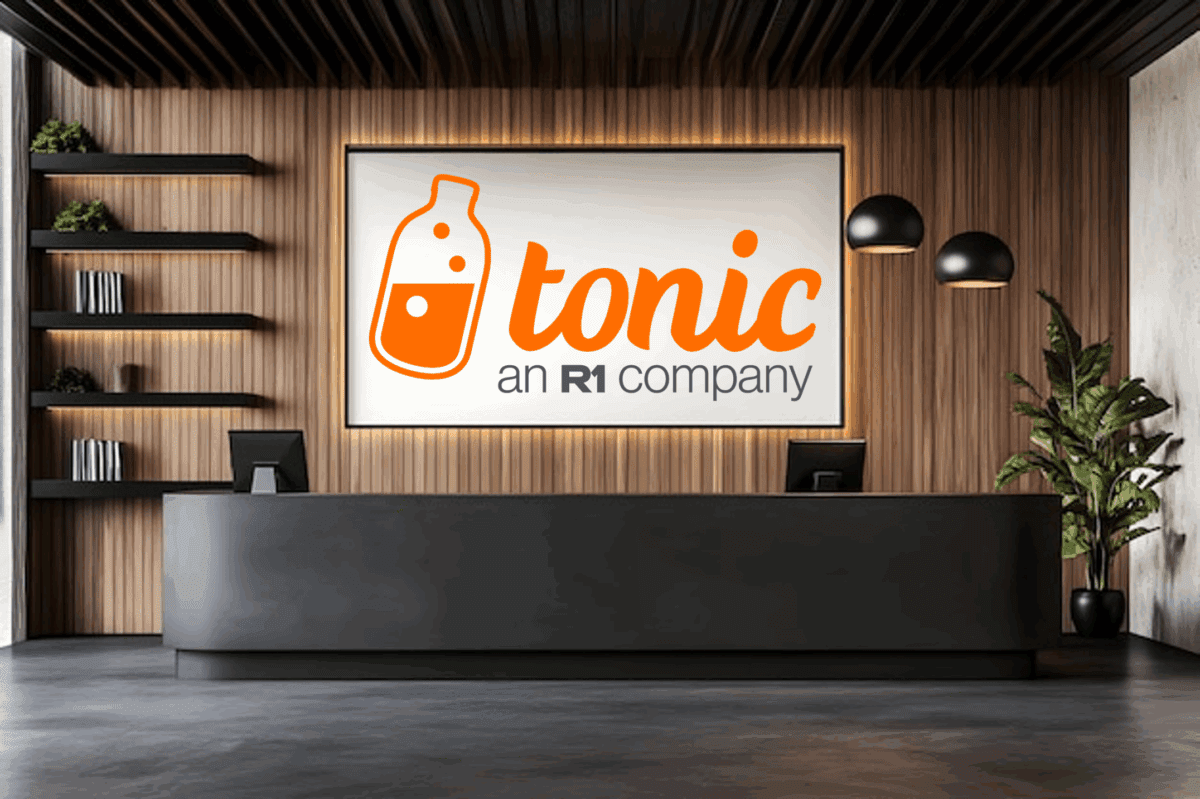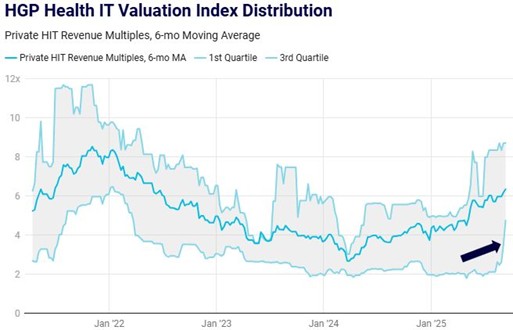What a difference a month makes. Last month, we began our Health IT Monthly Insight with “Ten years into the bull market, we operate in a heightened state of awareness for any indication of market weakness that may signal a downturn.” It didn’t take a “heightened state of awareness” to see the market unravel at the end of the month as a result of the global shock from Coronavirus. The broader markets fell ~11% during the week, the worst decline since 2008, and healthcare indices dropped a precipitous 10-16%. Fueling the flames on the healthcare front was increasing sentiment that Bernie Sanders, with the most disruptive Medicare for All plan on the ticket, could lead the democratic ballot in November. Given the likelihood of a Coronavirus-induced economic slowdown, the global markets are in a state of disarray and uncertainty. From a capital raise and M&A perspective, transactions are pressing forward with an unspoken caveat. Like everyone else, we cautiously press ahead, closely monitoring both the global health crisis and election year politics. Meanwhile, Coronavirus has not infected health IT…yet.

Noteworthy Transactions
Noteworthy M&A transactions during the month include:
- Ridgemont Equity Partners, announced its acquisition of HealthMark Group, a technology-enabled provider of release of information and other health information management services, and OTech Group, a provider of patient intake management software and systems. The combination creates a software platform that helps practices with patient check-in, form completion and signing, and compliant medical record release.
- CompuGroup Medical announced an agreement to acquire a part of Cerner’s portfolio in Germany and Spain for $248mm, valuing the assets at 3x revenue. The key products in the acquisition are medico and Soarian Integrated Care (S-IC), leading HISs in Germany; Selene, a leading HIS for public hospitals in Spain, and Soarian Health Archive, a document archiving solution for healthcare providers.
- OnShift acquired talent acquisition company, Avesta Systems. With the combined solution, healthcare providers will have the unmatched ability to hire, engage and retain quality employees, while achieving dramatically reduced turnover rates, decreased costs and enhanced quality and continuity of care.
- Medtronic announced the acquisition of Digital Surgery, a UK-based company specialising in surgical AI and digital education and training. The acquisition enables Medtronic to continue its efforts in advancing minimally invasive surgery.
- symplr acquired Netherlands-based The Patient Safety Company, expanding the healthcare industry’s leading end-to-end GRC platform of scale to include patient safety and incident tracking and reporting.
- Health Catalyst acquired quality reporting company Able Health for $27mm. The acquisition will bolster Health Catalyst’s existing quality and regulatory measures capabilities.
- Novo Benefits, a leader in self-funded insurance, completed the acquisition of technology platform Allay in a move that will make quoting and modeling health plans easier and more cost-effective for benefit consultants.
Noteworthy buyout transactions during the month include:
- Compex Legal Services, tech-enabled provider of outsourced medical records retrieval and litigation support services, was acquired by Windjammer Capital Investors.
- The Carlyle Group made a significant investment in MAK-SYSTEM, a family-owned company providing software for blood management solutions.
- Arsenal Capital Partners, announced the acquisition of BresMed Health Solutions, a pioneer in providing health economic research, communications, and consulting services to the global pharmaceutical industry.
Noteworthy investments during the month include:
- Hinge Health, developer of a digital solution to treat chronic musculoskeletal (MSK) conditions, closed a $90mm Series C round led by Bessemer Venture Partners with a post-money valuation of $405mm.
- Alphabet’s GV led a $100mm investment in Verana Health, data insights platform intended to accelerate healthcare innovation and optimize drug and device development. The round valued the Company at $250mm and included participation from Bain Capital, Casdin Capital, and Define Ventures.
- Innovative primary care provider network Iora Health raised $126mm led by India-based Premji Invest. Iora will use the Series F funding to accelerate growth and refine and optimize their care model.
- Headspace, a global leader in mindfulness and meditation, announced it raised a total of $93 million in its Series C funding round. The round included investors Advancit Capital, Waverley Capital, Times Bridge, The Chernin Group, Blisce, and Spectrum Equity and the Company plans to continue expanding its B2C segment, Headspace for Work.
- Women’s telemed company Maven Clinic, announced it has closed $45 million in Series C funding led by Icon Ventures, with participation from existing investors. The funding values the Company at $265mm and will be used deepen investment in its core digital programs across fertility, maternity, return-to-work, and pediatrics.
- Q Bio, a quantitative, clinically-relevant assessment of personal human health, announced it has officially come out of stealth mode and secured $40 million in Series B funding at a post-money of $140mm led by Andreessen Horowitz.
- Benefits experience platform, HealthJoy, secured $30 million in Series C venture funding, valuing the Company at $95mm. The round was led by Health Velocity Capital and the proceeds will be used to accelerate the development of the core platform.
- K Health, a free symptom checking app with optional paid telehealth features, announced this morning a $48 million Series C round led by 14W and Mangrove Capital. The funding values K Health at $458mm and will enable the Company ti refine its AI symptom checker and tackle new markets.
Noteworthy IPOs during the month include:
- Accolade, a platform designed to boost employee engagement with their health benefits, filed preliminary paperwork for an IPO, making it the 3rd Health IT Company to file for an IPO in 2020.
Noteworthy News Headlines
-
Google-Backed 1Life Healthcare, a provider of tech-driven primary care clinics under the One Medical brand, closed its first day of trading up 58% after raising $245 million in an initial public offering.
-
KLAS announces its “Best in KLAS Software & Services 2020” winners, with Epic winning top Overall Software Suite for the tenth straight year as well as awards in numerous other categories. Best in KLAS is a recognition given to vendors for outstanding efforts to help healthcare professionals deliver better patient care. The Best in KLAS designation is reserved for the software and services market segments that have the broadest operational and clinical impact on healthcare organizations.
-
Second big health system drops Cerner EHR. Atrium Health system, 40 hospitals and 900 care locations in its network, will replace Cerner with Epic. A week prior, Florida-based AdventHealth, renamed from Adventist Health System with 50 hospital campuses and more than 1,200 care sites, announced they will replace Cerner with Epic.
-
UnitedHealth stock suffers worst day in nearly 9 years as Sanders’ Nevada win stokes investor fear. Shares of UnitedHealth plunged toward their worst day in nearly 9 years, declining 7.8%, as the narrative around a potential Bernie Sanders nomination may have swung to negative from positive following the senator’s surprisingly big win in Nevada. Shares of Centene Corp,which provides programs and services to government-sponsored health-care programs, plunged 9.4%.
-
U.S. stocks tumble 11% in worst week since 2008 crisis. The spread of the coronavirus rattled global financial markets, sending U.S. stocks to their worst week since the financial crisis more than a decade ago. The S&P 500 plunged 11% in the five days. Treasuries surged, pushing yields on the 10- and 30-year notes to record lows during the period. Oil plunged toward $45 a barrel in its biggest weekly rout since 2008.
Public Company Performance
HGP tracks stock indices for publicly traded health IT companies within four different sectors – Health IT, Payers, Healthcare Services, and Health IT & Payer Services. The chart below summarizes the performance of these sectors compared to the S&P 500 for the month of February:
 The following tables include summary statistics on the four sectors tracked by HGP as well as the S&P 500 and NASDAQ for February 2020:
The following tables include summary statistics on the four sectors tracked by HGP as well as the S&P 500 and NASDAQ for February 2020:




